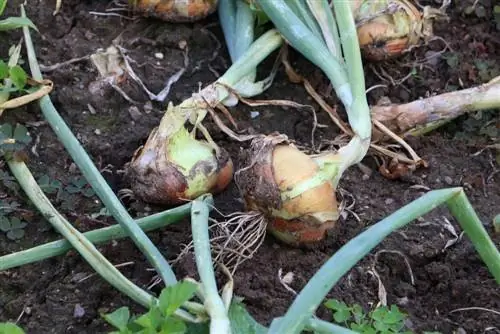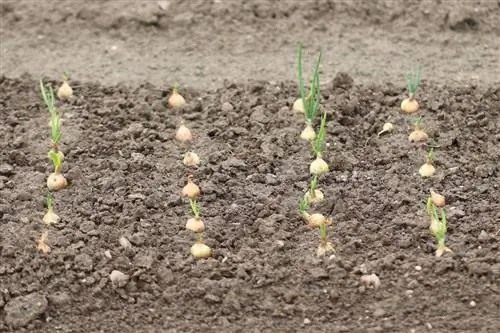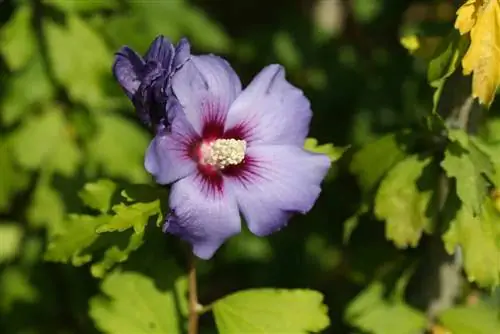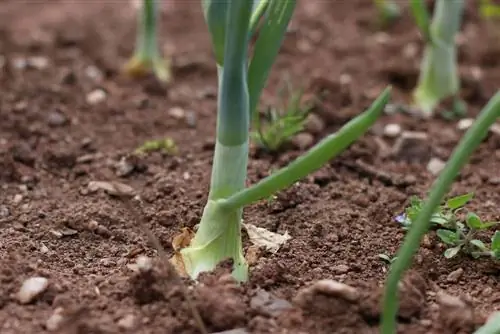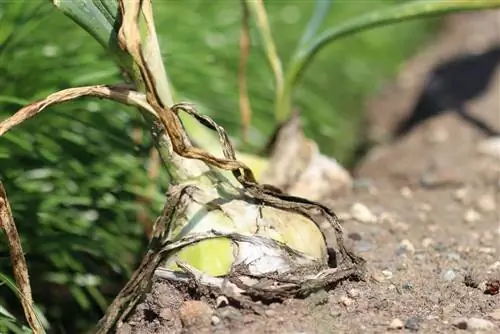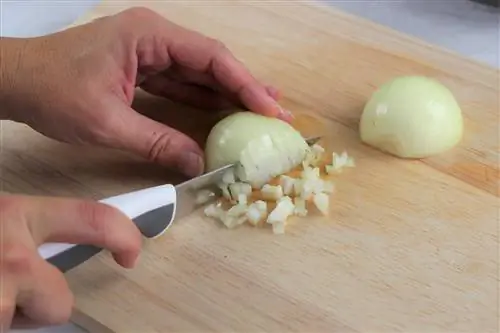- Author admin caroline@plants-knowledge.com.
- Public 2023-12-17 03:39.
- Last modified 2025-01-24 12:45.
In both cases, however, care should be taken to store onions as far away from other foods as possible so that they do not absorb the taste and smell of the onions.
Harvesting onions
Onions from your own garden are ready to be harvested when their leaves have withered and most of them have already dried out. Then the bulbs are removed from the ground and freed from the adhering soil. They are then first spread out on a sidewalk or other paved area in the garden so that they can dry. If you have a large quantity, it makes sense to wait for a day when it will definitely stay dry, but smaller quantities can also be dried on a covered area if necessary.
Basically, onions dry faster and better in dry and sunny weather than on days when it rains and the humidity is correspondingly high. It is best to start harvesting the onions early in the morning, as this leaves enough time for the drying process until the evening.
Drying onions after harvesting
The onions are collected again in the evening. Traditionally, they are often braided with their leaves and then hung up. In general, it is sufficient to simply tie the leaves of ten onions together with a ribbon and then hang them up in a cold, dark room. The basement is best suited for this as long as it is not heated, otherwise another building in the garden such as the tool shed can also be used. Instead of hanging the onions so that they can continue to dry, it is also possible to place them next to each other in a wooden box. In this case, the onions should be turned every now and then in the following weeks so that they can dry on all sides.
Store onions
If the onions are sufficiently dry, they can be placed in a storage container such as a wooden box. A slightly larger net, which is best hung from the ceiling, is also suitable for this. However, moldy or damaged onions should first be sorted out and - if this is still possible - used directly in the kitchen.
For long-term storage of onions, a room in which the temperature is just above freezing point is suitable. What is most important is that this room is dark, otherwise the onions will easily start to sprout again. In addition, the onions should not be moved if possible, then they will last for months and, with a sufficiently large harvest, will usually last until the next spring.
Store small quantities properly
It is not worth creating a special storage space in the basement for a small amount of onions purchased in a bag in a supermarket. They are best stored in a clay pot, which should have a few holes to allow the bulbs to ventilate. This pot is best placed in a dark and unheated room, for example in a small pantry next to the kitchen.

